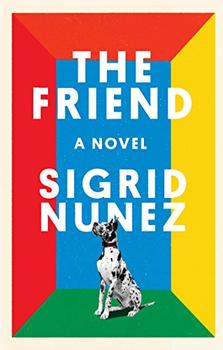Summary | Excerpt | Reviews | Beyond the Book | Readalikes | Genres & Themes | Author Bio

Because it's all about the rhythm, you said. Good sentences start with a beat.
You posted an essay, "How to Be a Flâneur," on the custom of urban strolling and loitering and its place in literary culture. You caught some flak for questioning whether there could really be such a thing as a flâneuse. You didn't think it was possible for a woman to wander the streets in the same spirit and manner as a man. A female pedestrian was subject to constant disruptions: stares, comments, catcalls, gropes. A woman was raised to be always on guard: Was this guy walking too close? Was that guy following her? How, then, could she ever relax enough to experience the loss of sense of self, the joy of pure being that was the ideal of true flânerie?
You concluded that, for women, the equivalent was probably shopping—specifically, the kind of browsing people do when they're not looking to buy something.
I didn't think you were wrong about any of this. I've known plenty of women who brace themselves whenever they leave the house, even a few who try to avoid leaving the house. Of course, a woman has only to wait until she's a certain age, when she becomes invisible, and—problem solved.
And note how you used the word women when what you really meant was young women.
Lately I've done a lot of walking but no writing. I missed my deadline. Was given a compassionate extension. Missed that deadline, too. Now the editor thinks I'm malingering.
I was not the only one who made the mistake of thinking that, because it was something you talked about a lot, it was something you wouldn't do. And after all, you were not the unhappiest person we knew. You were not the most depressed (think of G, of D, or T-R). You were not even—strange as it now sounds to say—the most suicidal.
Because of the timing, so near the start of the year, it was possible to think that it had been a resolution.
One of those times when you talked about it, you said that what would stop you was your students. Naturally, you were concerned about the effect such an example might have on them. Nevertheless, we thought nothing of it when you quit teaching last year, even though we knew that you liked teaching and that you needed the money.
Another time you said that, for a person who had reached a certain age, it could be a rational decision, a perfectly sound choice, a solution even. Unlike when a young person commits suicide, which could never be anything but a mistake.
Once, you cracked us up with the line I think I'd prefer a novella of a life.
Stevie Smith calling Death the only god who must come when he's called tickled you pink, as did the various ways people have said that were it not for suicide they could not go on.
Walking with Samuel Beckett one fine spring morning, a friend of his asked, Doesn't a day like this make you glad to be alive? I wouldn't go as far as that, Beckett said.
And weren't you the one who told us that Ted Bundy once manned a phone for a suicide prevention center?
Ted Bundy.
Hi. My name is Ted and I'm here to listen. Talk to me.
That there was to be a memorial took us by surprise. We who had heard you say that you would never want any such thing, the very idea was repugnant to you. Did Wife Three simply choose to ignore this? Was it because you'd failed to put it in writing? Like most suicides, you did not leave a note. I have never understood why it is called a note. There must be some who don't keep it short.
In German they call it an Abschiedsbrief: a farewell letter. (Better.)
Your wish to be cremated had been respected, at least, and there was no funeral, no sitting shivah. The obituary stressed your atheism. Between religion and knowledge, he said, a person must choose knowledge.
Excerpted from The Friend by Sigrid Nunez. Copyright © 2018 by Sigrid Nunez. All rights reserved. No part of this excerpt may be reproduced or reprinted without permission in writing from the publisher.
These are not books, lumps of lifeless paper, but minds alive on the shelves
Click Here to find out who said this, as well as discovering other famous literary quotes!
Your guide toexceptional books
BookBrowse seeks out and recommends the best in contemporary fiction and nonfiction—books that not only engage and entertain but also deepen our understanding of ourselves and the world around us.